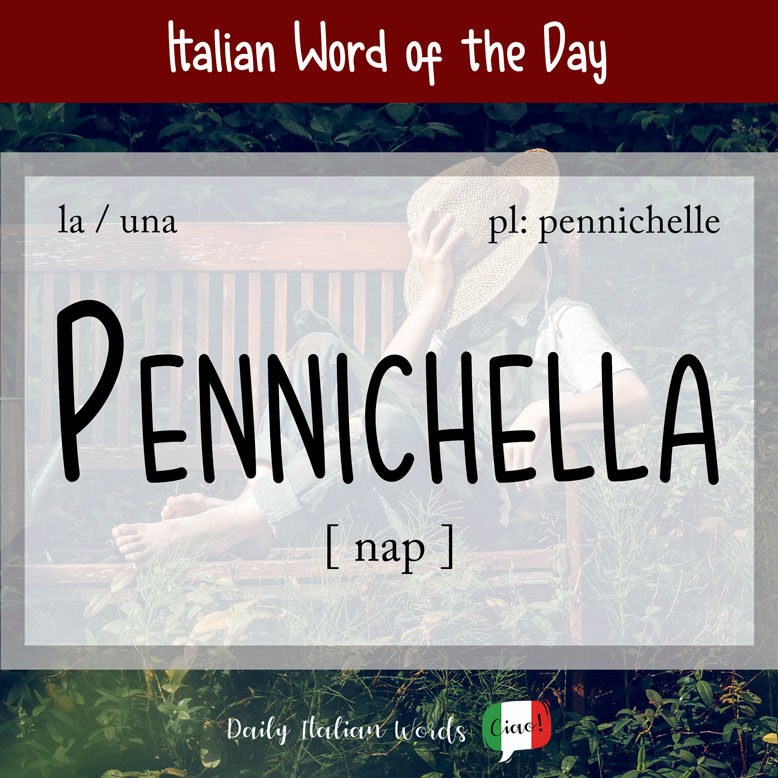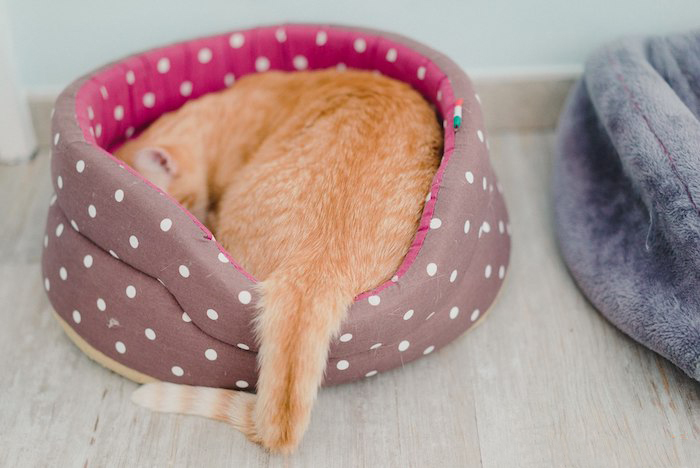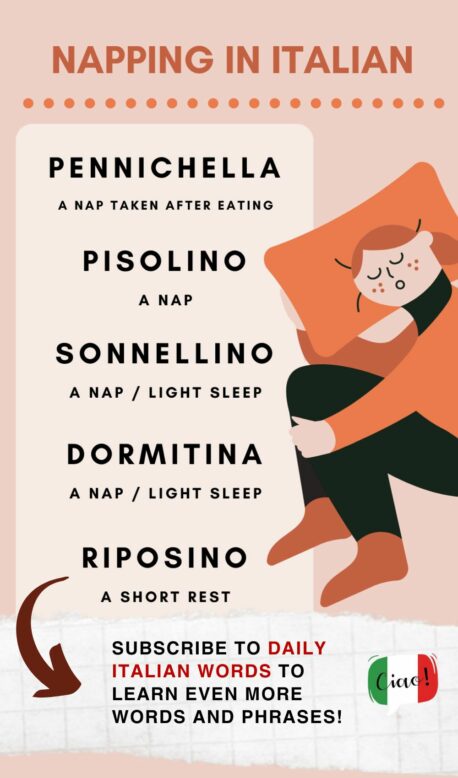If you’re just wiping the last crumbs from your mouth following a wholesome Italian meal, you may feel the need for what the Italians call a pennichella!

Pennichella is a feminine noun and takes the following articles:
la pennichella
the nap
una pennichella
a nap
le pennichelle
the naps
delle pennichelle
(some) naps
Pennichella is one of the most common words for nap in Italian. It is the romanesco (Roman dialect) version of the word pennica. Originating from the Latin pendiculare, which means to hang or suspend, it describes the afternoon nap (riposino pomeridiano) many Italians take after eating lunch, especially if they are experiencing l’abbiocco dopo mangiato (drowsiness after eating).
Che abbiocco, ragazzi! Mi farei una pennichella.
I’m so drowsy, guys! I’d happily take a nap.
Opposite to Anglo-Saxon countries, it is quite acceptable to take a pennichella in the afternoon before heading back to work. And this tradition isn’t limited to Italy – other Mediterranean countries such as Spain also embrace the midday nap, especially when the weather is warm.
Pennichella isn’t the only word for nap in Italian. Pisolino has a very similar meaning, although it refers more to a generic nap than a nap taken specifically after eating. It is the diminutive form of the near-obsolete word pisolo and is often used in combination with the verb schiacciare (to press, to flatten).
Vado a schiacciare un pisolino prima di tornare al lavoro!
I’m going to take a nap before going back to work!
Tip from a fellow learner: I personally don’t use the word pisolino very much because it sounds too similar to pisellino. (Look it up and you’ll know why I prefer to avoid the awkwardness of pronouncing this word incorrectly!)

Then we have the words sonnellino and dormitina. The former is closely related to the word sonno (sleep or sleepiness) whereas the latter is the diminutive form of dormita (a good night’s sleep). Either can be used as a substitute for pennichella or pisolino as a word for nap or light sleep.
Io un sonnellino lo farei volentieri.
I would gladly take a nap.
Approfitto del tempo libero per andare a fare una dormitina.
I’m going to make the most of my free time by going to have a nap.
Finally, there is the word riposino which can mean either a quick rest or a short nap. It comes from the word riposo, meaning rest, break or sleep depending on the context.
Ogni tanto un riposino è necessario per ricaricarsi.
A nap is sometimes necessary to recharge.
According to recent research, a pennichella can actually be good for you provided that you get a good night’s sleep in the first place. According to psychologist Dr. Sara Mednick, a nap that lasts anywhere between 15 and 90 minutes can improve memory, focus and creativity, lower stress, and recharge your willpower. It is also linked to lower rates of cardiovascular disease and inflammation!
So go ahead, put all that guilt aside, and have a pennichella. After all, the Italians have been doing it for centuries! 😉

Heather Broster is a graduate with honours in linguistics from the University of Western Ontario. She is an aspiring polyglot, proficient in English and Italian, as well as Japanese, Welsh, and French to varying degrees of fluency. Originally from Toronto, Heather has resided in various countries, notably Italy for a period of six years. Her primary focus lies in the fields of language acquisition, education, and bilingual instruction.


